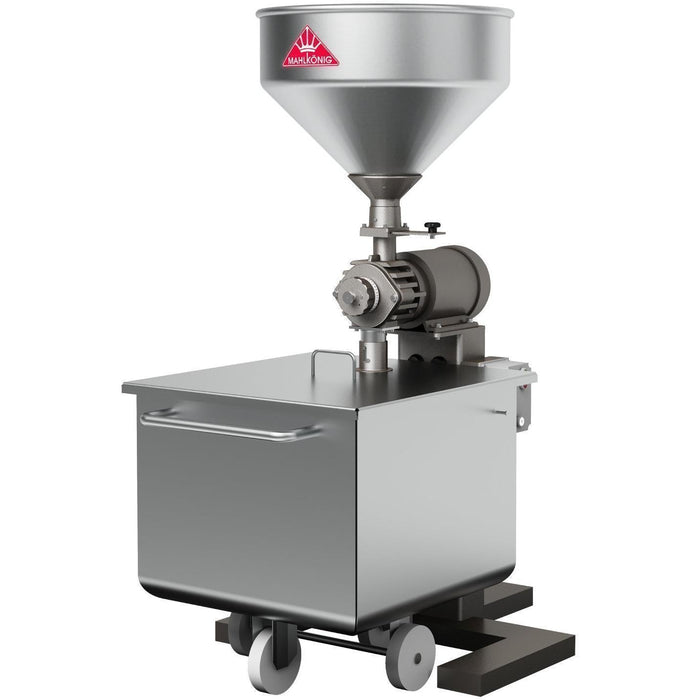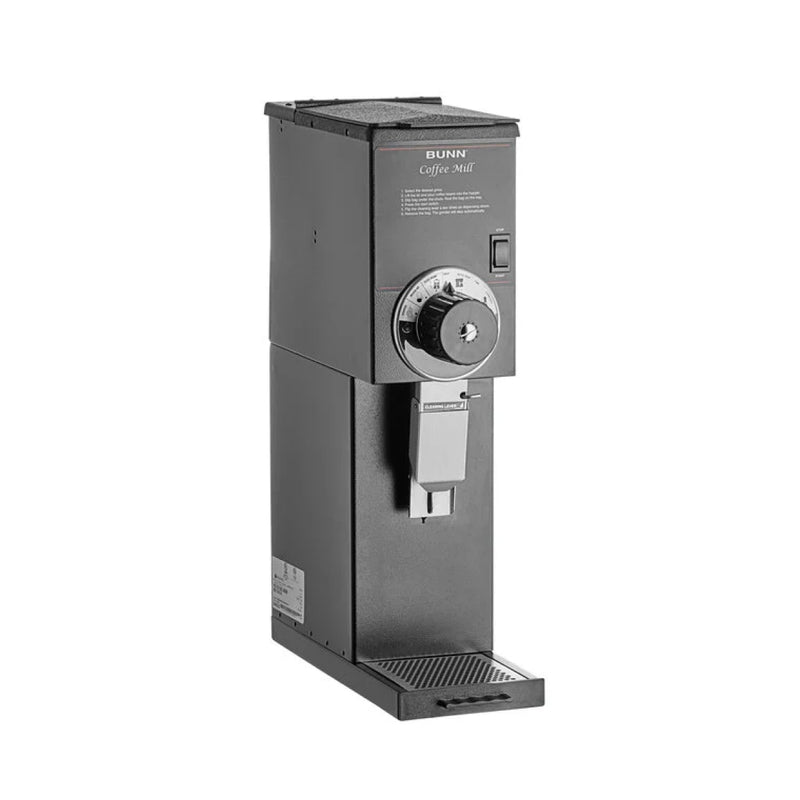Industrial Coffee Grinder Overview: Increase Effectiveness and Quality
In the competitive landscape of coffee manufacturing, picking the appropriate commercial coffee mill plays a crucial duty in boosting both performance and item top quality. Understanding the nuances of various grinder kinds and key features-- such as customizable grind settings and durable construction-- can significantly influence the last taste account of the coffee.
Recognizing Grinder Types
When selecting an industrial coffee grinder, recognizing the numerous types available is important for optimizing both flavor removal and operational efficiency. Both key kinds of grinders are blade mills and burr grinders. Blade mills utilize sharp blades that cut coffee beans right into inconsistent dimensions, causing unequal extraction and possibly undesirable tastes. While blade mills are frequently more suitable and inexpensive for small operations, they are generally not suggested for industrial usage.

Ultimately, choosing the ideal sort of grinder is indispensable to maintaining high quality and performance in coffee production, making it important for organizations to invest in premium burr mills for optimal results.
Secret Attributes to Consider
Choosing a commercial coffee grinder needs cautious factor to consider of several crucial attributes that can substantially affect both performance and the general coffee experience. One of the key aspects to assess is the grinding system. Burr grinders are usually preferred over blade grinders, as they offer a constant work dimension, which is critical for optimal extraction and flavor.
Another essential attribute is the mill's ability. A flexible grinder with multiple setups permits you to tailor the work size to various developing methods, enhancing the coffee's taste profile.
The building material also plays a duty in resilience and upkeep. Stainless steel components frequently offer long life and are much easier to clean up, which is important for keeping health standards. Last but not least, examine the grinder's sound degree, especially in an active café or manufacturing environment, where too much sound can be turbulent. Purchasing a mill that balances these functions can considerably enhance both functional efficiency and the high quality of the coffee served.
Optimizing Grinding Process
To accomplish the best results in coffee prep work, maximizing the grinding process is important. The grind dimension substantially affects you could look here extraction, taste, and overall quality of the made coffee.


In addition, checking the grinding speed can maximize the process. Slower grinding often generates less heat, protecting fragile tastes and aromas. On the other hand, quicker grinding might create excessive warmth, negatively affecting the coffee's high quality.
Upkeep and Treatment Tips
Correct maintenance and treatment of industrial coffee mills are crucial for guaranteeing optimal efficiency and long life. Routine my response cleansing is the structure of maintenance; residue buildup can impact taste and grinding performance. It is a good idea to clean the mill after each usage, cleaning down the exterior and eliminating any type of coffee grounds from the burrs.
Additionally, examine the grinding burrs for damage. Boring burrs my company can compromise grind consistency, so they need to be changed as required. Industrial Coffee Grinder. Occasionally adjusting the mill is likewise important, as this keeps the desired grind size for various brewing methods
Lubrication of moving components ought to be done according to the supplier's requirements, as this decreases friction and prolongs the life of the equipment. It is crucial to make use of food-grade lubes to guarantee safety and conformity with health guidelines.
Last but not least, keep the grinder in a dry and steady atmosphere to avoid corrosion and rust. By adhering to these maintenance and treatment pointers, drivers can boost the performance of their industrial coffee mills while guaranteeing high-grade output and prolonged functional life.
Return on Financial Investment Analysis
Reviewing the roi (ROI) for industrial coffee mills is essential for businesses seeking to enhance their coffee production capacities. An extensive ROI evaluation aids identify the economic feasibility of buying high-grade grinders, permitting companies to evaluate the first prices against possible gains.
Evaluate the purchase cost of the grinder, including installation and any kind of required alterations to existing facilities. High-performance mills usually lead to lowered grinding time and increased throughput, which can substantially improve efficiency.
Additionally, take into consideration the effect on product top quality. Industrial Coffee Grinder. Superior mills produce a more constant work size, which can improve taste accounts and consumer contentment, ultimately driving sales. By boosting the high quality of the last product, organizations can warrant greater pricing, leading to enhanced earnings
Verdict
In recap, an industrial coffee mill plays a pivotal function in improving both performance and item high quality within coffee manufacturing. Inevitably, the calculated investment in a trustworthy grinder contributes substantially to boosted profits and competitiveness in the coffee sector.
In the affordable landscape of coffee production, choosing the best commercial coffee mill plays a crucial role in boosting both effectiveness and item quality. The two main types of grinders are blade grinders and burr grinders. Within the burr grinder group, there are level burr grinders and conelike burr grinders, each with its advantages. Burr grinders are typically chosen over blade grinders, as they provide a regular work size, which is vital for optimal extraction and taste.
In recap, a commercial coffee mill plays a critical duty in boosting both performance and item high quality within coffee production.